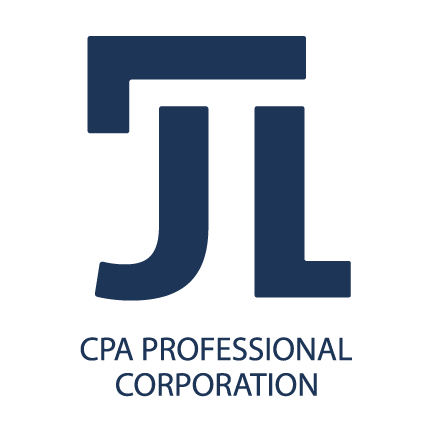Side Hustle: Obligations and Considerations
If you have a side hustle or planning to start one, this would be a great article for you to understand your obligations and considerations. According to Canada’s historical inflation rates at Rateinflation.com, the average inflation rate for Canada in 2022 was 6.8%, January 2023 was 5.9% and February 2023 was 5.2%.
Here are some other facts and news articles that everyone pays attention to:
Food prices in Canada: Families to pay $1,065 more in 2023 | CTV News (this is around a 7% increase) 👎
Rents in Canada are through the roof. Here are the most expensive cities | Globalnews.ca (this is around a 12% increase compared to December 2021 based on the national average) 👎
Wow, these stats are through the roof! Compare them to this:
According to this article from QuickBooks Canada Side Hustle Industries in Canada | QuickBooks Canada (intuit.com), around ‘15% of working-age Canadians now say they have a side hustle’. From looking at these stats above, it’s easy to identify why.
What is a side hustle and what are your obligations and considerations?
Let’s get started!
Side ‘Hustle”
What is a Side Hustle?
According to Oxford Dictionary: a side hustle is ‘a part time job that a person does as well as their regular job’ I didn’t even know this was defined in a dictionary until now!
There are two types of side hustles:
Employed (ie. Part Time Job)
Self-Employed (ie. Your own business)
Having a part time job is straight forward because you will receive a tax slip from your employer which you report on your tax return. This article will focus on the Self-Employed type since there are more obligations and considerations.
Do You Have to Report Income on a Side Hustle?
This is probably the first question you will ask and probably many others too. It depends but most of the time, yes, you have to report income you generated from your side hustle. Maybe ask yourself this question first: ‘why did you start a side hustle?’. If it’s to supplement your living expenses, generated additional savings, etc. to make a profit, then yes, you have to report this.
It’s important to distinguish between a business vs a hobby.
What is Considered a Business?
According to What is a business? - Canada.ca,
A business is an activity that you intend to carry on for profit and there is evidence to support that intention.
It includes:
A profession
A calling
A trade
A manufacture
An undertaking of any kind
An adventure or concern in the nature of trade
This definition is really broad and includes pretty much anything. Do you generate a profit? If yes, that is considered a business.
What Happens If You Don’t Report Side Hustle Income?
CRA has two sections on the consequences of not reporting income. It’s not only limited to side hustle income but income in general. You can find a link to the CRA’s website False reporting or repeated failure to report income - Personal income tax - Canada.ca:
Here are the two sections in summary:
#1 – Repeated failure to report income penalty
Under this section, the penalty has two parts to it and is whichever amount is less between:
10% of the amount you failed to report
50% of the difference between:
o The understated tax or overstated credits of the amount you failed to report
o The tax withheld from the amount you failed to report
#2 – False statements or omissions penalty
Under this section, there is a penalty if you knowingly, or under circumstances amounting to gross negligence, or made a false statement or omission. The penalty is whichever amount is more between:
$100
50% of the understated tax and/or the overstated credits related to the false statement or omission
So what does this all mean?
Make sure you report your side hustle income properly to avoid CRA audit. As seen above, the penalties could be quite steep and it’s possible that this can cover multiple years. Also, you will be subject to interest that will be back dated to the year that the audit is related to.
Your next question would probably be: ‘How would CRA find out about income that is not reported?’ Here is an article: How Does the Canada Revenue Agency Find Unreported Income? (rktaxlaw.com)
Considerations of a Side Hustle
When starting a side hustle or continuing with your side hustle, here are some areas that you should consider:
#1 – Business Bank Account/Credit Card
Make sure to have a separate business bank account or credit card just for your side hustle because it will help a lot with the bookkeeping and keeping track of business-related income and expenses. If you have more than one side hustle then there should be a separate business bank account for each side hustle. Don’t comingle personal and business-related activities!
#2 – Keeping Receipts
If you purchase things for your side hustle (you will definitely have this), make sure to keep your receipts for at least 7 years in case CRA asks for this. It doesn’t matter if you keep paper or electronic receipts but it’s important to have them readily available. If you have many receipts, maybe it’s a good idea to invest in a document management system like Dext or Hubdoc.
#3 – Bookkeeping
Make sure you have a system for all the bookkeeping which is the recording of transactions. This could be Excel or an accounting software like QuickBooks Online or Xero. You want to track how much income you are generating and how much expenses you are incurring.
#4 – Business Licenses
Depending on the type of side hustle you have or plan to have, you may need to register for a business license in order to operate. Make sure to review the regulatory requirements. Here is a link where you can do some research on licenses and permits: Permits, licences and regulations - Canada.ca
#5 – Review your Employment Agreement
A side hustle means that you have a full-time employment and this is something extra you’re doing on the side. Make sure to review your employment agreement to see if there are any restrictions on starting a side hustle.
#6 – Save Money for Taxes
Make sure to leave a reserve in your bank account for the tax obligations at the end of the year. Since your side hustle may increase your tax bracket, you may be subject to tax installments throughout the year.
#7 – HST
If your side hustle brings in $30k in gross sales per year or more, you may have to register for an HST account with CRA. Once registered, you have to charge HST to your customers, but you can claim ITCs on purchases you made. If you don’t have an HST account, you cannot charge HST to your customers! You could be filing and paying HST on a monthly, quarterly or annual basis, depending on the reporting frequency that CRA provides you with.
#8 – Learn the language of business
Accounting is the language of business and if you don’t have a background in accounting, make sure you learn this. This is different than bookkeeping mentioned in #3 above. Accounting is about analysis while bookkeeping is the recording of transactions. Check out these blogs on the Balance Sheet, Income Statement, Cash Flow Statement and Financial Statements as a starting point.
Your Turn
Do you have a better understanding of the obligations and considerations for starting a side hustle? Make sure to review the above again to ensure you didn’t miss anything.
If you need help with bookkeeping, accounting or tax for your side hustle, make sure to reach out to an accountant or bookkeeper.
If you found value from this article, make sure to sign up for our newsletter to get notified of a new blog!
At JTL CPA, we are Ontario’s virtual accounting firm. Our goal is to automate your accounting and bookkeeping processes in a way that increases financial visibility. Pair that with our value-added approach and tailored advisory solutions gives you the ability to make sound decisions from good data. Check out our website here: https://www.jtlaccounting.com.
Thank you for making it to the end of the blog post. If there are topics that you would like to learn more about in the future, please let us know down in the comments.
Automation drives success!
Make sure to follow us here:
Until then, see you next time!
#accounting #business #entrepreneurship #success


